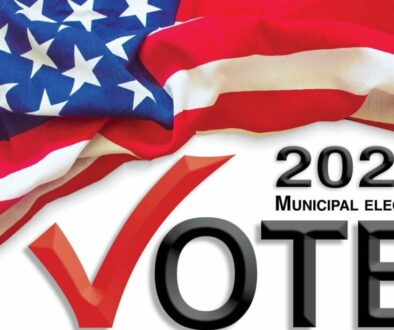Sen. Rand Paul wants to investigate origins of COVID-19
SMITHFIELD, Ky. — U.S. Sen. Rand Paul promised Saturday to wage a vigorous review into the origins of the coronavirus if Republicans retake the Senate and he lands a committee chairmanship.
Speaking to supporters at a campaign rally, the libertarian-leaning Kentucky Republican denounced what he sees as government overreach in response to the COVID-19 pandemic. He applauded a recent judge’s order that voided the federal mask mandate on planes and trains and in travel hubs.
“Last week I was on an airplane for the first time in two years and didn’t have to wear a mask,” he said, drawing cheers from the partisan crowd. “And you know what I saw in the airport? I saw at least 97% of the other free individuals not wearing masks.”
Paul has clashed repeatedly with Dr. Anthony Fauci, the country’s top infectious disease expert, over the government’s COVID-19 policies and the origins of the virus that caused the global pandemic.
Paul, who is seeking a third term this year in Kentucky, said he’s in line to assume a committee chairmanship if the GOP wins Senate control after the November election. The Senate currently has a 50-50 split, but Democrats have the slim edge because Vice President Kamala Harris is a tie-breaking vote.
“When we take over in November, I will be chairman of a committee and I will have subpoena power,” Paul said. “And we will get to the bottom of where this virus came from.”
The senator, an eye surgeon, continued to offer his theory about the origins of the virus.
“If you look at the evidence, overwhelmingly, not 100%, but overwhelmingly the evidence points to this virus being a leak from a lab,” Paul said.
In the U.S., many conservatives have accused Chinese scientists of developing COVID-19 in a lab and allowing it to leak.
U.S. intelligence agencies remain divided on the origins of the coronavirus but believe China’s leaders did not know about the virus before the start of the global pandemic, according a Biden-ordered review that was released last summer.
The scientific consensus remains that the virus most likely migrated from animals in what’s known as a zoonotic transmission. So-called “spillover events” occur in nature, and there are at least two coronaviruses that evolved in bats and caused human epidemics, SARS1 and MERS.
At the Kentucky GOP rally for Paul, Senate Republican leader Mitch McConnell, the state’s senior senator, also pointed to Paul’s opportunity to lead a committee if the GOP wins Senate control.
If that occurs, he said, Paul would become chairman of “one of the most important committees in the Senate — in charge of health, education, labor and pensions.”
McConnell was upbeat about Republican prospects in November.
“I’ve never seen a better environment for us than this year,” said McConnell, who is in line to again become majority leader if the GOP reclaims the Senate.
The rally featured a number of other prominent Kentucky Republicans, including several who are considering running for governor in 2023, when Democratic Gov. Andy Beshear will seek a second term.
In his speech, Paul continued to rail against socialism, saying it would encroach on individual liberties. The senator was first elected to the Senate in the tea party-driven wave of 2010.
“When President Trump said he wanted to ‘Make America Great Again,’ I said, ‘Amen,’” Paul said. “But let’s understand what made America great in the first place, and that’s freedom, constitutionally guaranteed liberty.”
In this year’s Senate race in Kentucky, Charles Booker is by far the best known of a handful of Democrats seeking their party’s nomination for Paul’s seat in the May 17 primary. Paul is being challenged by several little-known candidates in the GOP primary. A general election campaign between Paul and Booker would be a battle between candidates with starkly different philosophies.
Booker, a black former state lawmaker, narrowly lost a bid for the Senate Democratic nomination in 2020. He is a progressive who touts Medicare for all, anti-poverty programs, a clean-energy agenda and criminal justice changes. Paul, a former presidential candidate, has accumulated a massive fundraising advantage over Booker.
Kentucky has not elected a Democrat to the U.S. Senate since Wendell Ford in 1992.
 Twitter
Twitter Facebook
Facebook Instagram
Instagram